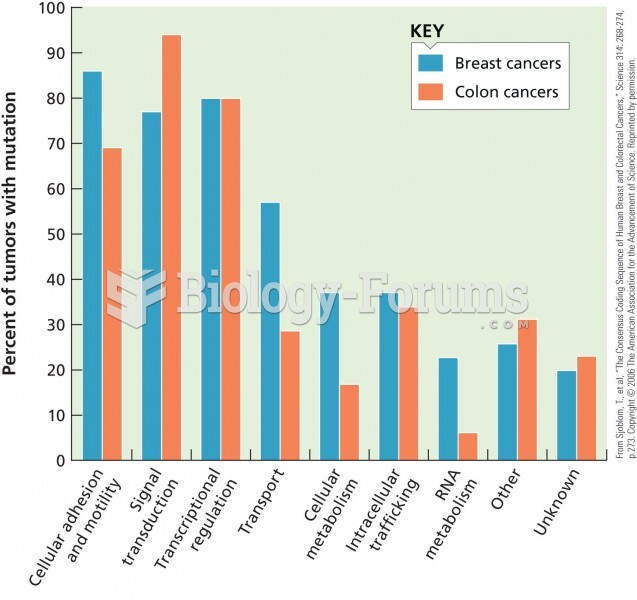|
|
|
The human body's pharmacokinetics are quite varied. Our hair holds onto drugs longer than our urine, blood, or saliva. For example, alcohol can be detected in the hair for up to 90 days after it was consumed. The same is true for marijuana, cocaine, ecstasy, heroin, methamphetamine, and nicotine.
Although puberty usually occurs in the early teenage years, the world's youngest parents were two Chinese children who had their first baby when they were 8 and 9 years of age.
The largest baby ever born weighed more than 23 pounds but died just 11 hours after his birth in 1879. The largest surviving baby was born in October 2009 in Sumatra, Indonesia, and weighed an astounding 19.2 pounds at birth.
Your heart beats over 36 million times a year.
Human stomach acid is strong enough to dissolve small pieces of metal such as razor blades or staples.
 European Rabbit in Shropshire, England, infected with myxomatosis, a disease caused by the Myxoma vi
European Rabbit in Shropshire, England, infected with myxomatosis, a disease caused by the Myxoma vi
 Positron emission tomography (PET) image showing the difference in the metabolic activity of the bra
Positron emission tomography (PET) image showing the difference in the metabolic activity of the bra





